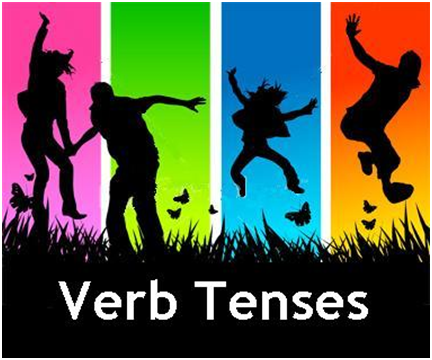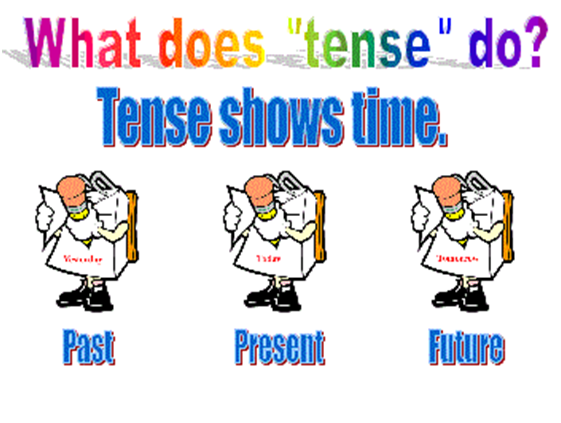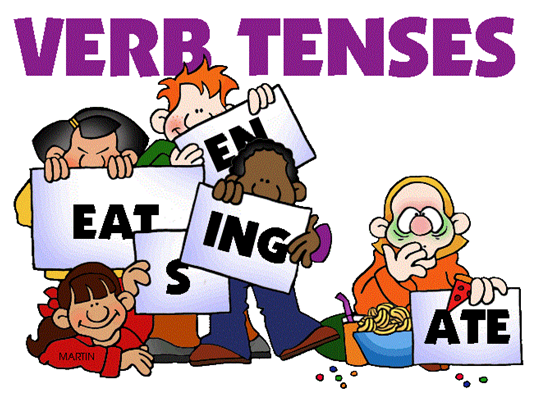Etymology:
The word 'tense' is derived from the old French vocabulary. It's taken from the French word 'temps' which meant time. Almost all the languages with the exception of Burmese and Chinese have 'tense' as part of their vocabulary.
Meaning:
The whole concept of tenses is based on time. It suggests when an event or a verb takes place. The time phase can be in the past, present and future. Accordingly, the different types of tenses in English are future tense, present tense and past tense. There are many subparts that you will come across below.
Usage:
Tenses are used in the verbs to denote the various timelines where the event has occurred. The event may also have a combination of past, present and future, which form the basis for subdivision in tenses.
Rules and examples of Tenses and its various types:
The below examples will show you the appropriate way to use tenses along with proper examples.
1. Present Tense
A. Simple Present Tense
The rule is as follows: Singular subject+Verb+s/es
1. He eats.
2. He plays.
3. He drives.
4. I don't like what she does.
B. Continuous Present Tense
The rule for the continuous present tense is as follows: Subject+is/am/are+verb+ing
1. She is playing.
2. They are playing.
3. Are we not playing?
4. He is coming.
5. I am dancing.

C. Perfect Present Tense
The rule is: Subject+has/have+verb+ed
1. She has played.
2. We have arrived.
3. Have they not gone?
4. He has arrived.
5. I have read this book.
D. Perfect continuous present tense
The rule is: Subject+has been/have been+verb+ing
1. She has been playing.
2. I have not been eating my medicines lately.
3. They have been waiting very patiently.
4. It has been raining since morning.
5. They have been walking for a long time.
2. Past Tense
A. Simple Past Tense
The rule is: subject+verb+ed.
1. She arrived.
2. He came.
3. They played.
B. Continuous Past Tense
The rule is as follows: Subject+was/were+verb+ing
1. I was driving.
2. He was eating.
3. They were playing.
C. Perfect Past Tense
The grammatical rule for perfect past tense is as follows: Subject+had+verb+ed/en.
1. They had played this game before.
2. She had eaten a lot of mangoes.
3. He had spoken to me about him.
D. Perfect Continuous Past Tense
The rule is: Subject+had been+Verb+ing
1. She had been playing when he came.
2. They had been swimming when it rained.
3. He had not been eating when the phone rang.
3. Future Tense
A. Simple Future Tense
The rule is: Subject+shall/will+verb.
1. I shall drive.
2. He will come.
3. Shall I play?
B. Continuous Future Tense
The rule is: Subject+shall be/will be+verb+ing
1. I shall be driving.
2. He will be speaking.
3. Will she not be playing?
C. Perfect Future Tense
The rule is: Subject+shall have/will have+Verb+ed.
1. She will have played.
2. Will he have played?
3. I shall have driven.
D. Perfect Continuous Future Tense
The rule is: Subject+shall have been+will have been+verb+ing.
1. She will have been driving.
2. I shall have been studying.
3. They will have been travelling over long distances.

The above rules will guide you in the proper usage of tenses. Tenses are the base for fluent English speaking. Make yours stronger with the help of online English training course to help better your understanding of the English language.
About eAgeTutor:
eAgeTutor.com is a premier online English learning institute. eAge's world class faculty and ace communication experts, from around the globe, help you to improve in an all-round manner. Assignments and tasks based on a well-researched content developed by subject matter and industry experts can certainly fetch the most desired results for improving spoken English skills. In this age of effective and advance communication technology, online spoken English programs are the most effective and convenient way to learn English.
For further information on our online English speaking courses or to experience the wonders of the virtual classroom, fix a demonstration session with our tutor.
- By Chander Madan
Related Topics:
1. 10 common mistakes in English.
2. Do you know what words with similar pronunciation but with different meaning/spelling known are as?
3. Use of could, should, would?
4. When to use the articles - a, an, the?
5. Common 'Singular-Plural' Mistakes – Part I
